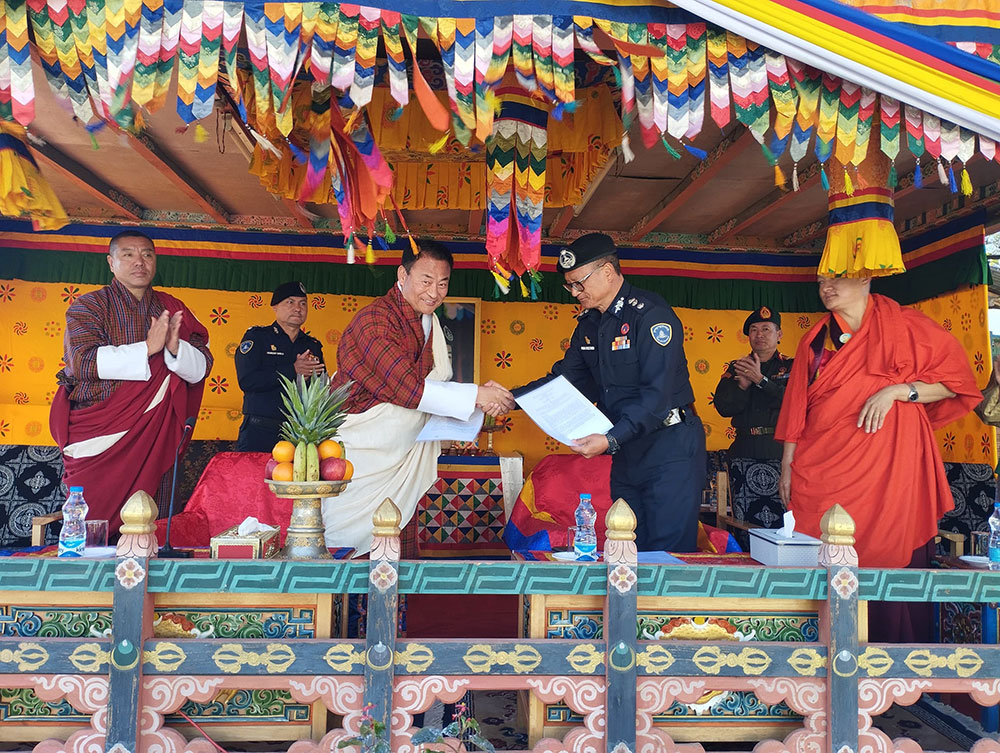
Chukha — Home Secretary Sonam Wangyel inaugurated the National Search and Rescue Training Center (NSARTC) at the Special Reserve Police Force campus in Tashi Gatshel yesterday.
Additional Chief of Police, Colonel Phub Gyaltshen, government officials and members from the Local Government of Tashi Gatshel and Royal Bhutan Police also attended the event.
The construction of the structures started in 2021 completed recently at an estimated cost of Nu 186.6 million funded by the European Union.
Sonam Wangyel said that considering the threats from various hazards and the increasing impacts on lives, livelihoods and properties the setting up of the centre was timely.
“His Majesty The King has always reminded us regarding the vulnerable state of Bhutan—in line with this, the NSARTC will enhance the overall preparedness of the response teams to undertake SAR operations effectively and also to provide an internationally certified search and rescue course,” he said.
The centre will enable and facilitate the government and relevant agencies in the formation of qualified SAR teams as per the International Search and Rescue Advisory Group (INSARAG) guidelines. “This centre over time will be an exemplary place where individuals from neighbouring countries can attend along with the Bhutanese individuals,” he said.
Superintendent of Police, NSARTC, Tashi Gatshel, Lt. Colonel Karma Samten said that SAR training aims to build a pool of professional SAR responders, enhance preparedness for all types of natural disasters, and position a minimum of one SAR team in every dzongkhag with basic SAR equipment.
Deputy Chief Programme Officer, Department of Local Governance and Disaster Management (DLGDM), Choki Tashi said that the centre will help in staying prepared for the natural disasters. “With the signing of the agreement today, the European Union and police division have a clear understanding of the project and the way forward.”
“For the initial years, the training centre will be focused towards the armed force personnel and de-suups who have been the early responders to the natural calamities thus far—the training will be extended to communities and gewog level over time,” he said.
The trainees will learn mountain SAR, ground SAR, urban SAR training which involves the location, extrication, and initial medical stabilisation of victims trapped in confined spaces, and water SAR.
The police will also provide SAR and disaster-related training to de-suups, Gyalsups, and volunteers on request from the home ministry.
Five batches consisting of 221 de-suups have been trained to date since 2020.
The establishment of the NSARTC is mandated by the Disaster Management Act 2013.












